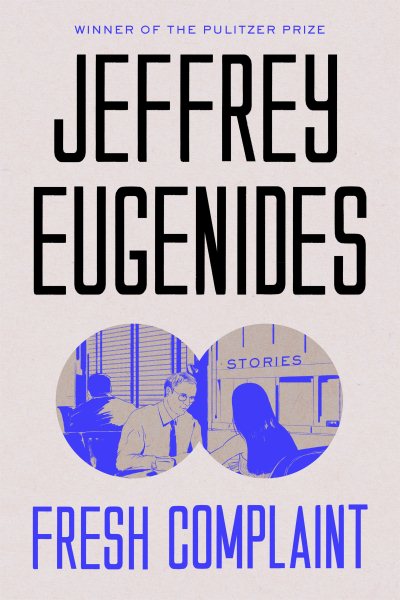by Trianne Harabedian
I recently told someone that Fresh Complaint, Jeffery Eugenides’ new collection of short stories, is so well-written I could cry. I lied. I had already cried, specifically while sitting by my apartment’s swimming pool and reading the story “Early Music.” I don’t think anyone saw, but if they had, I would have told them the truth–that one of my favorite authors has reminded me how much I love books, and that I am not sure I will ever be so passionate about anything else.
I lied. I had already cried, specifically while sitting by my apartment’s swimming pool and reading the story “Early Music.” I don’t think anyone saw, but if they had, I would have told them the truth–that one of my favorite authors has reminded me how much I love books, and that I am not sure I will ever be so passionate about anything else.
It all began three Christmases ago when I did something completely out of character: I went home to California without a book. The going home part is normal enough, but I am the type of person who always has a book. Work, coffee with a friend, shopping? There’s probably a book on the front seat of my car or hiding in my purse. My plan was to find something random to read at home, some literary junk food to pass the time. I distinctly remember looking through my shelves one night, thinking, “I should probably start reading more adult fiction,” and picking up The Marriage Plot. That was when I fell in love.
There is something about the way Jeffery Eugenides tells a story. Instead of focusing on plot points or crazy adventures–although his works contain both–he draws the reader towards the characters themselves. He begins by introducing us to a character and her current life. Then he steps into a short flashback, and then another with more details, until we are caught in a whirlwind of the past and the present. When we know the characters as intimately as we know ourselves, Eugenides allows them to progress, or regress, and we proceed with them. In his story “Complainers,” two women become friends despite unlikely circumstances. As they grow older, one moves away and eventually develops dementia. Her friend’s attempts to help are both painful and relatable, set against the backdrop of a snowstorm. “Timeshare” is about a man whose aging parents throw themselves into renovating a motel in Florida. Each person’s feelings towards the property are unique, and it comes to symbolize dreams for reliving life. My favorite story, “Early Music,” is about a man who based his entire higher education on learning to play an early form of the piano. Now, years later, he is called daily by debt collectors asking for his remaining payments on this instrument. Despite having a wife and children to support, he cannot bring himself to give up his dreams in the form of the clavichord.
If you crave intimacy with a character the way I do, you will not get enough of his Eugenides’ writing. On the other hand, the amount of detail is intimidating. People shy away from his novels because they think they are too long, or too detailed, or too boring (none of which are true). I was a bit apprehensive that his short stories wouldn’t incorporate the trademark detail and introspection. But this is exactly why his short stories work so well. In just a few pages, Eugenides is able to capture a person, their entire life, and boil it down to the important scenarios. If you have been intimidated by the sheer length of Middlesex, or bored by the idea of the Marriage Plot, or put-off by the subject of The Virgin Suicides, this is the collection for you. It’s time to stop being afraid and pick up Fresh Complaint.


Comments are closed.